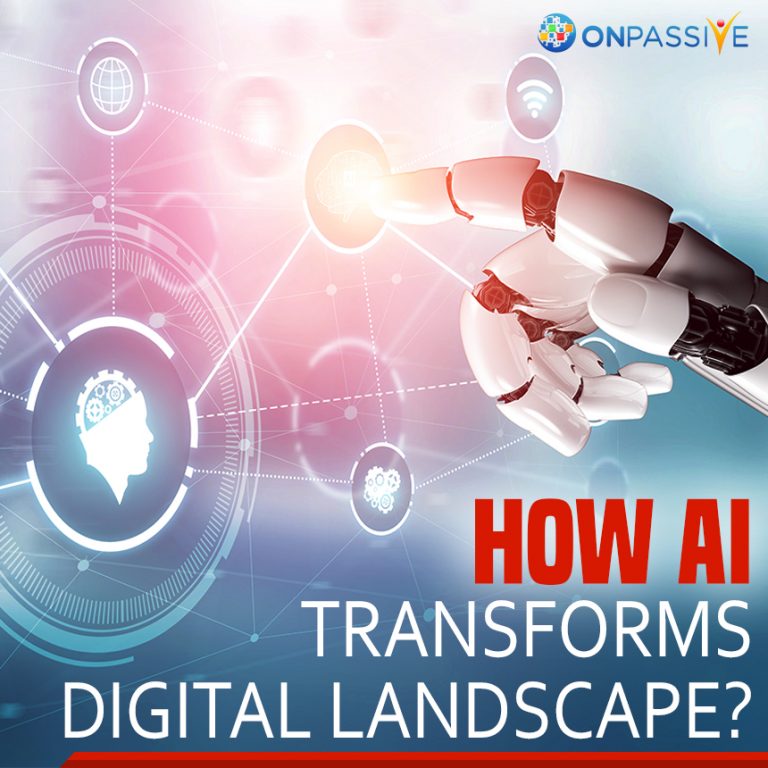
The COVID-19 coronavirus crisis is an unprecedented one in the history of humanity and caught the whole world by a big unpleasant shock. The major hurdle for the entire global economy was to support the business flow amidst the lockdown, social distancing, and other difficulties. While some organizations were better equipped – some were confused initially but ultimately tackled it – rest crumbled and surrendered to the situation, and are waiting for it to get over.
Artificial intelligence or AI has the potential to help us tackle the urgent crisis by the COVID-19 pandemic. Though it is not the technology itself, it will yet enhance the knowledge and creativity of the humans who use it. The COVID-19 crisis will more likely expose some of the critical shortcomings of AI. Machine learning, a current model of AI, operates by recognizing patterns in historical training data. When used intelligently, AI has the potential to surpass humans in speed and by identifying patterns in that training data that humans have missed.
Though, AI systems require a lot of data, with suitable examples in that data, to discover these patterns. Machine learning also essentially assumes that conditions today are the same as the conditions outlined in the training data. In other words, AI systems believe entirely that what has worked in the past will still work in the present and also in the future.
Necessarily, a technology that has been till now crawling or strolling will now start sprinting. As a matter of fact, a paradigm transformation in the economic relationship of humanity is going to be observed in the form of quickened adoption of artificial intelligence (AI) technologies in the methods of production of goods and services. The AI-era has already been encountered before the pandemic broke with the backward linkages of big data and cloud computing. Still, the imperative of sustained social distancing has made an AI-powered economic world order today’s reality.
RPA and IPA- The Potential Automation Solution
Technology-enabled intelligent automation solutions for manual business processes such as refunds or cancellations can be saviours for several businesses. A superb example is Airbnb, which appears to be transforming its cancellation policies with just a push of a button. These quick automated chatbots and web forms accumulate data from the affected users to be processed by people. The status is renewed by email response or through an online web inquiry. Technologies like RPA can help create fast connections between various companies, and it blends well with chatbots to take inputs and to provide replies back to the consumer. These replies don’t require long to develop and can support reduce the stress to humans who must do the exhaustive manual tasks of canceling and correcting without any significant errors.
In unpredictable times like these, with stressful and pre-occupied minds, human workers can make errors operating under tense environments. Such an obnoxious situation can be avoided by automating the tiresome manual business processes. Smart bots can deliver these rule-based processes and be scaled up according to the industry’s needs.
Executing automation does not restrict any industry; it calls for a broader scope of the latest manual processes. Automation solutions find its use-case even in the medical sector, automating patient monitoring, automating inventory management, claim to handle operations, and invoice processing in manufacturing, or supporting the banking industry with consumer onboarding and loan origination process.
AI in Digital Marketing is also present to provide data and insights so that brands can learn what’s actually working and what’s not. It will assist marketers in understanding and predicting which kind of messages work and how they should be shared. With the assistance of AI, we can achieve a healthy level of confidence that a particular message, shared at a specific time, will be a success. AI utilizes machine learning to adjust and make real-time adjustments that influence digital marketing. It’s difficult to foretell the exact effect of the events such as the COVID-19 pandemic, but AI can help us track and anticipate such circumstances and provide us with the required data to proceed.
Automation technologies like Chatbots and RPA can play an essential role in responding to such situations faster than current system builds. The technology is there, and it will be fascinating to watch how these companies seek to take help from the automation technology and, most importantly, how the AI-automation technology rises to the challenge.
Gone are the days when automation bots were regarded as a job killer. In the evolving times to come, automation will be a job protector to ease the burden and pressure on the human employees, enabling them to continuously touch lives better. This, in turn, will encourage businesses to respond better to emergencies and serve their consumer’s requirements at a more accelerated pace, improving brand loyalty and longevity!


